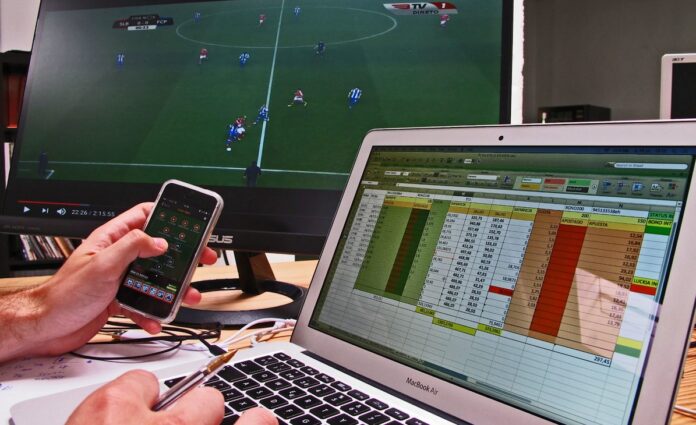
You can often hear that sports betting has nothing to do with investing and trading. But are those who say so right? In this article, we’ll take a closer look at these activities and highlight both the differences and striking similarities that few people have thought about.
If you find this text interesting, visit Telecomasia.net for even more useful information on various topics.
Capital management and risks

One of the most obvious similarities between investing, trading and betting is that they involve both risk and choices. Both bettors and investors must decide how much they are willing to risk. Traders on average risk 2–5% of their capital in any trade. Long-term investors are constantly hearing about the benefits of diversification across different assets. All of this is essentially a risk management strategy. To minimize possible losses and save as much of the initial captain as possible, as well as increase it, investors distribute savings in different directions.
Bettors also have to carefully weigh the amount they want to bet. If the odds are favorable and the bet is of high value, then the player is more likely to place a bet. Most professional bettors are real experts in risk management and bankroll allocation. They try to bet no more than 2–5% of the total bank at a time (we see the same figures in investing) so as not to lose everything.
In both betting and investing, the key principle is the desire to minimize risk by maximizing profits. With the right approach and keeping a cool head, you can get income in the long run in both activities. But you can lose everything if you get emotional and hope for luck or your intuition, and not for analysis of facts.
Lose everything

Now let’s talk about the key difference. In betting, you will not be able to reduce losses if you are pursued by a series of failures. If you set aside $10 every week to bet on matches, for example, the NBA and don’t win, then over time you will lose all your money. Losses cannot be minimized.
Investors also can prevent global losses. One such way is to use a stop loss. This is such an exchange order, which the investor or trader sets in the trading terminal to limit losses when the price reaches a predetermined minimum size.
Thanks to such a tool, if your shares lose 10% of the price at which you bought them, you still have the opportunity to sell these securities to another person and retain 90% of your capital.
You can’t do that with betting. If you bet $100 that the Los Angeles Lakers would win the championship next season, and they just play in the finals, you can’t get some of your money back. The bet is irreversible. It’s either a total win or a total loss.
Quantity, time and results

We have already said that in the long run, betting can generate income. This happens when a player adheres to a certain strategy and systematically makes one bet after another. One bet says nothing yet. The player places a bet on an event that is limited in time, and after it ends, he gets a certain result, either a loss or a win. Everything is extremely simple. Later, by making extra bets, the bettor can recover and receive a certain income in a month.
In investing, things usually work out differently. A one-time purchase of one company’s stock often does not make a profit until a long time later. Investors who buy a stake in a company that pays dividends are rewarded for their risk because the company will pay whether your shares rise or fall. You hold on to the capital of the company. But this process can take years, so the time frame here is very different from what we see in betting.
Information analysis

Both stock market investors and bettors look for ways to improve the outcome of their investments. Good gamblers and experienced investors in one way or another are learning patterns of behavior and necessary actions that can lead to success.
For example, bettors often choose a betting strategy based on the experience of other players who have won or lost by betting according to a certain pattern for some time. They research websites and forums to find information that will help them win.
Similarly, some stock traders do the same when they study trading patterns by interpreting and analyzing stock charts. Using the data that is presented on them, stock market professionals try to predict how prices will behave in the future and build a trajectory for their fall or rise.
Information is valuable in all spheres, but what is common to stock investing and betting is that reliable and detailed information plays a key role here. So, both types of investors and bettors try to get as much information as they can, and the Internet is helping.
All data about stocks and companies are publicly available. Even before investing, it is possible to read about the selected company’s earnings and study the members of the management team. Stock traders, who make hundreds of transactions a day, can use daily activity to make the right decisions for the future. However, no matter what, stock information is far from perfect, otherwise, there would not be insider trading or the Securities and Exchange Commission (SEC).
Before making a bet, bettors try to study the statistics of the teams, get information about the injured players and the lineup for the match, the general condition of a particular club, the motivation to win. Even a long flight or a change of time zones can affect the result of the match. All this helps the professional player to make his prediction on the match and decide whether to bet or not. But, as with promotions, the information is not always complete. In many sports, it is possible to run into match-fixing, which is fought by special international organizations.

Conclusions
So, if someone tells you that there is a huge gap between betting on sports and investing or trading, remind them that these activities not only have differences but also similarities. For example, in both cases, there is a certain level of risk of losing money, the desire to earn an income and find as much information as possible to predict how events will unfold and make a profitable investment. Sports betting does not take as much time as equity investing, which can last for years. But investors and traders have the tools to avoid losing all their money, while the bettor has to count only on himself.
In any case, one cannot say that one of these activities is better or worse than the other. Everyone decides for himself what is closer to him.










